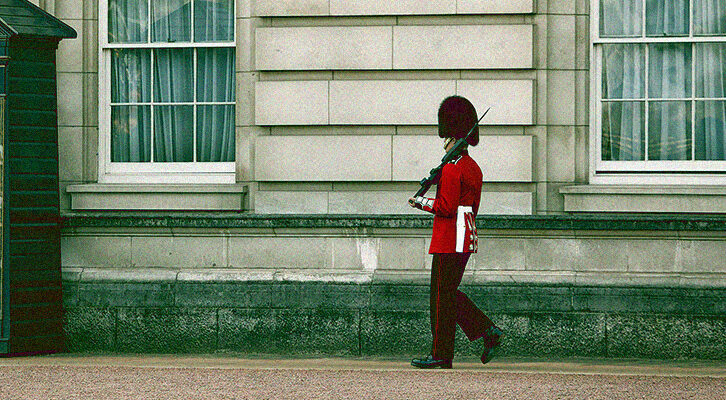George Orwell’s 1984 is Always Just Around the Corner
This Week on the History of Literature Podcast
For tens of thousands of years, human beings have been using fictional devices to shape their worlds and communicate with one another. Four thousand years ago they began writing down these stories, and a great flourishing of human achievement began. We know it today as literature, a term broad enough to encompass everything from ancient epic poetry to contemporary novels. How did literature develop? What forms has it taken? And what can we learn from engaging with these works today? Hosted by Jacke Wilson, an amateur scholar with a lifelong passion for literature, The History of Literature takes a fresh look at some of the most compelling examples of creative genius the world has ever known.
George Orwell was one of the 20th century’s great literary figures. An English novelist who also excelled at essays and journalism, he fought all his life against injustice, snobbery, hypocrisy, deception (including self-deception), and lazy prose.
In this episode, Mike Palindrome, president of the Literature Supporters Club, joins Jacke to discuss Orwell’s life and works, including 1984, Animal Farm, his lesser-known novels, his journalistic works like Down and Out in Paris and London and Homage to Catalonia, and his most famous essays, including “Politics and the English Language,” “Shooting an Elephant,” and “A Hanging.”
From the episode:
Jacke Wilson: Since we’re talking about books that sold well, I will take my third pick, which is 1984. Just the achievement of 1984 is pretty incredible. It introduced all these words and concepts like newspeak and doublethink and clock striking 13 and Room 101, where you live out your worst fears. And Big Brother. I mean, Big Brother—that’s completely entered into our vocabulary.
The whole concept of gaslighting is in there, though it’s not called that. But we live through that now, these past few years, where you’re being told that you can’t trust your own eyes and fake news and the way that lies upon lies upon lies will exhaust the citizen, until the citizen says there is no truth, the truth is not discernible. And the politicians say, you just need to rely on us for the truth. Or rely on me. Mussolini said, the truth is people are tired of making decisions. And Orwell said, well, what if this was really put into place, with perpetual wars to make people afraid and a surveillance state to make people afraid of dissent.
We all said of 1984 that it didn’t come to pass because Orwell wrote about it. I remember people saying that—oh, we’re not living through 1984 because Orwell cautioned us. And when the wall fell, we all said, see, it’s not sustainable, even the Soviet Union fell. It can’t hold. And now I look at it a little differently. I think of it as more like a constant struggle that we could lapse into it at any time. That the warning is still fresh because we’re vulnerable, that people are always vulnerable to power like this. Maybe 1984, the reason why it didn’t happen by 1984 was the technology was just premature, and maybe we’re still headed down that path, and it’s still around the corner.
Mike Palindrome: Yeah, I mean, predictive powers was on my list. 1984, Animal Farm, Homage to Catalonia, the whole sweep of nonfiction memoir. Down and Out in Paris and London is such a teachable book. I think he really saw the potential of fiction plus something else.
Jacke Wilson: Right. It’s a great moment for dystopia. It’s sort of the great 20th-century example of a dystopian novel. It’s literary and it seems scientific. It’s that combination of esthetics and action again. It’s the sort of book that Orwell was born to write.
________________________
Subscribe now on iTunes, Spotify, Google Podcasts, Android, Stitcher, or wherever else you find your podcasts!




















